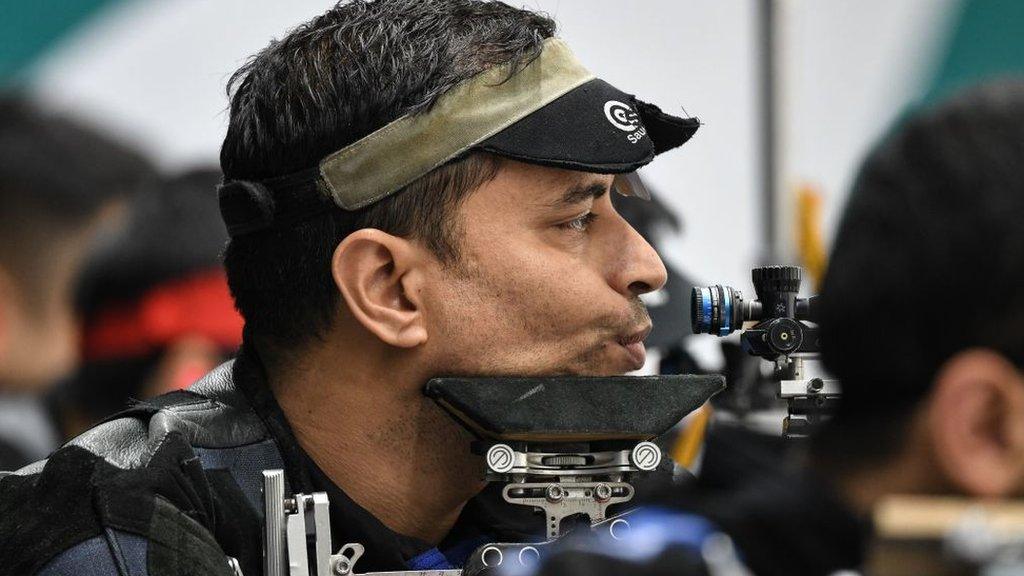Dunblane concern over shooting events at Commonwealth Games
- Published
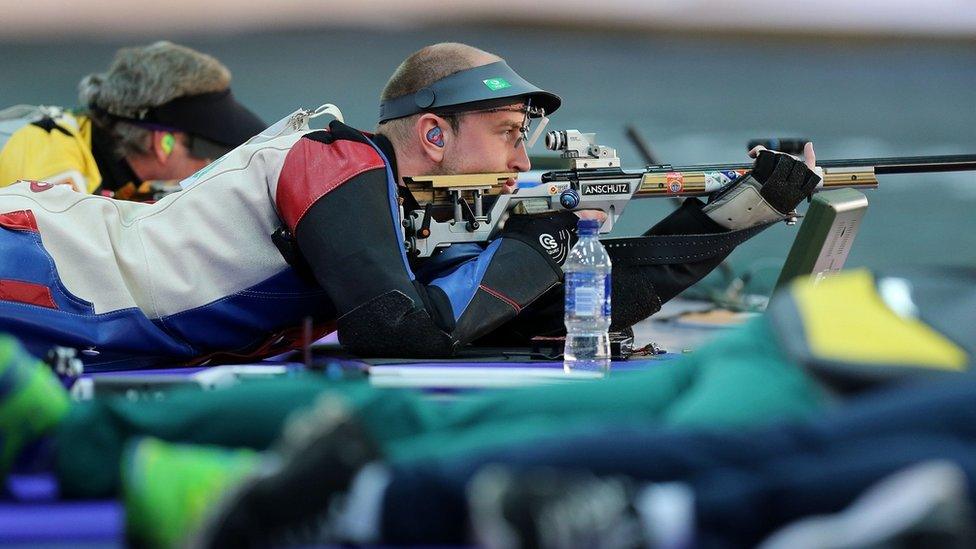
England's Kenneth Parr shooting during the 50m Rifle Prone Men at the Barry Buddon Shooting Centre in Carnoustie, during the Glasgow 2014 Commonwealth Games.
Scottish ministers were concerned over whether shooting events at the 2014 Commonwealth Games in Glasgow would be controversial due to sensitivities around the Dunblane shooting.
Cabinet papers published by National Records of Scotland reveal a discussion among Jack McConnell's ministers.
Thomas Hamilton killed 16 pupils and a teacher at Dunblane Primary School before shooting himself in March 1996.
Tighter gun measures in the UK were introduced following the tragedy.
Cabinet papers from February 2007, when Lord McConnell led a Labour/LibDem coalition, noted that planning for the Commonwealth Games in Glasgow was under way, and that shooting had been included as one of the additional sports in the programme.
"Although this decision could prove to be controversial, given the sensitivities that remained in Scotland following the Dunblane tragedy, it was clear that, without it, Glasgow would have lost votes on its bid," the papers said.
Subsequently ministers decided the sport would take place at existing training facilities for the military or police.
When the games took place in 2014, shooting was held at the Barry Buddon training camp near Dundee, which is owned by the Ministry of Defence.
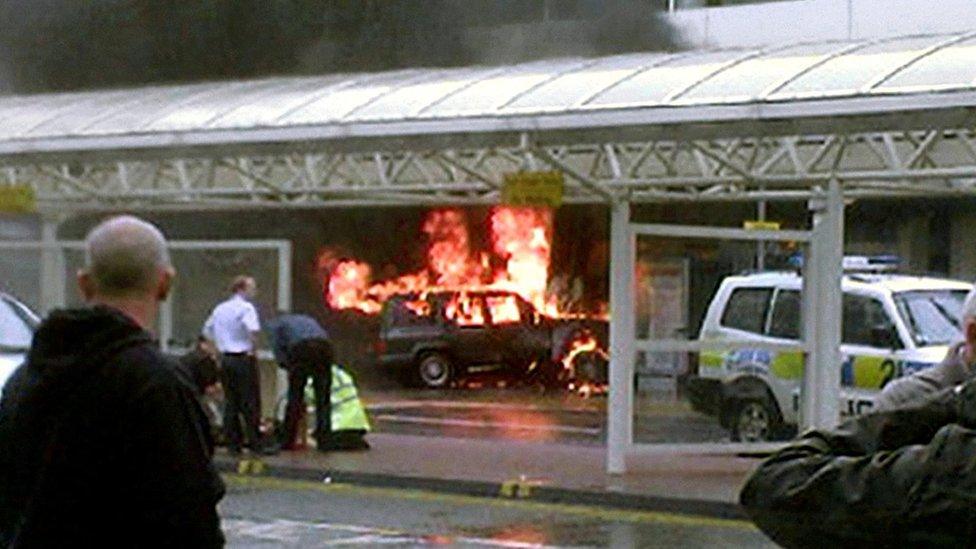
Cabinet papers published by National Records of Scotland show ministers were concerned about NHS staff being "victimised as a group" after the Glasgow Airport attack in 2007.
Other Scottish cabinet papers published by National Records of Scotland show that ministers were concerned about NHS staff being "victimised as a group" after the Glasgow Airport attack because one of the attackers was a doctor.
The attack on 30 June 2007, where two men rammed a car filled with propane tanks into the doors of the airport, resulted in the death of one of the attackers and injuries to five people.
One of the terrorists, Bilal Abdullah, was working as a doctor at the Royal Alexandra Hospital in Paisley as a diabetes specialist when the attack was committed.
Details from a cabinet meeting on 3 July 2007 discussed the potential demonisation of NHS staff and possible background checks for healthcare workers coming in from abroad. Abdullah was born in England but qualified as a doctor in Iraq.
The ministers - now led by Alex Salmond in the first months of the SNP minority government - discussed potential impacts on the health service following the attack.
The papers said: "It would be important to get the strong messages across publicly that NHS staff, like the other emergency services involved in these incidents, had shown huge professionalism in dealing with the aftermath of the events and that health professionals from overseas played an important role in the NHS in Scotland."
Solicitor General Frank Mulholland KC also spoke to ministers at the time of the potential impact on ethnic minority communities more widely.
He told them the police were "working closely with minority communities who might feel vulnerable and offering the reassurance that any incidents of a racial nature would be rigorously pursued".
Both men involved in the Glasgow Airport bombing were also linked to car bombs discovered in London the previous day.
Abdullah was eventually convicted of conspiracy to murder and sentenced to life in prison, with a minimum term of 32 years.
The other attacker, Kafeel Ahmed, was badly burned and died of his injuries at Glasgow Royal Infirmary.
Related topics
- Published13 March 2021
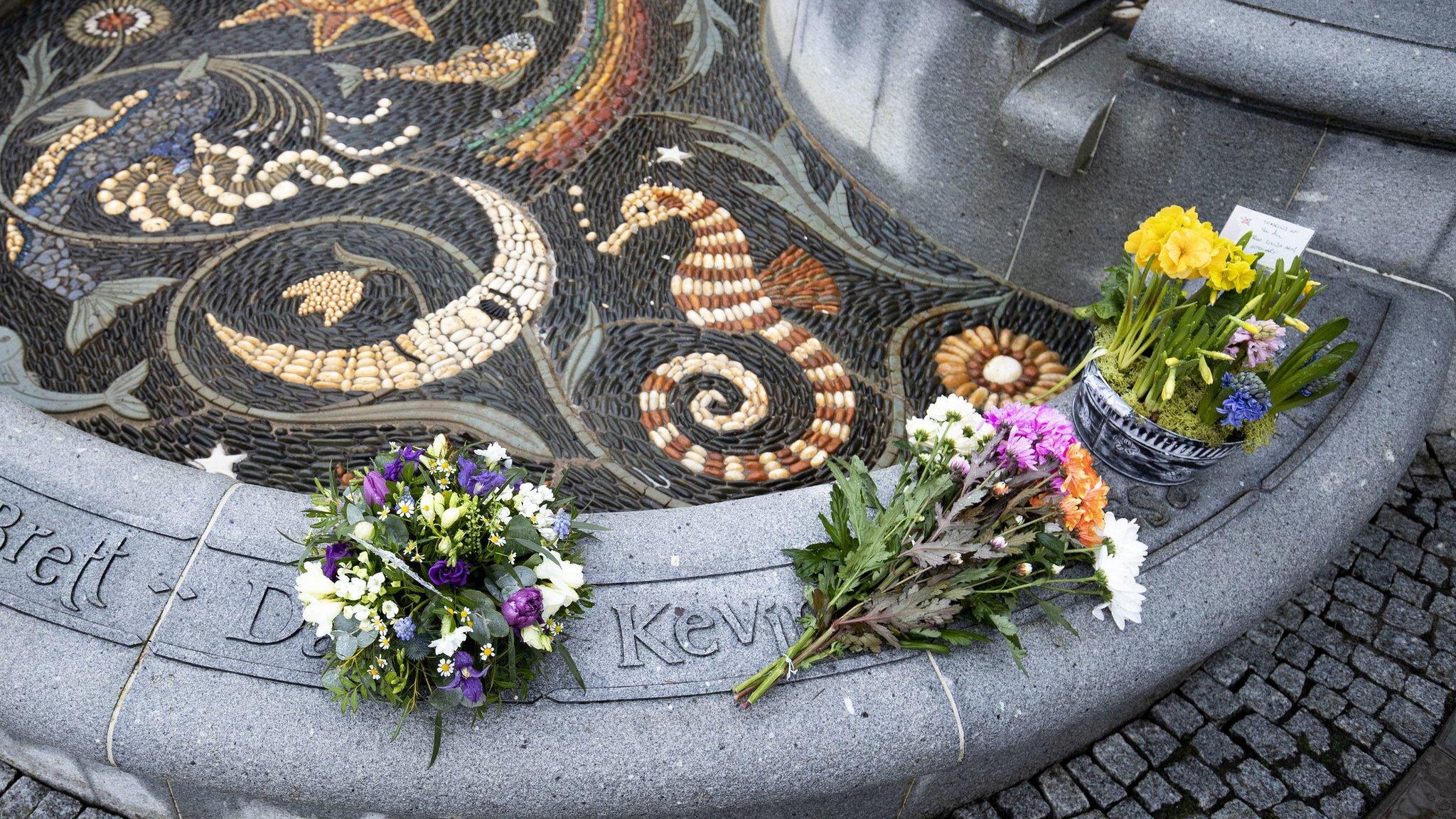
- Published10 March 2021
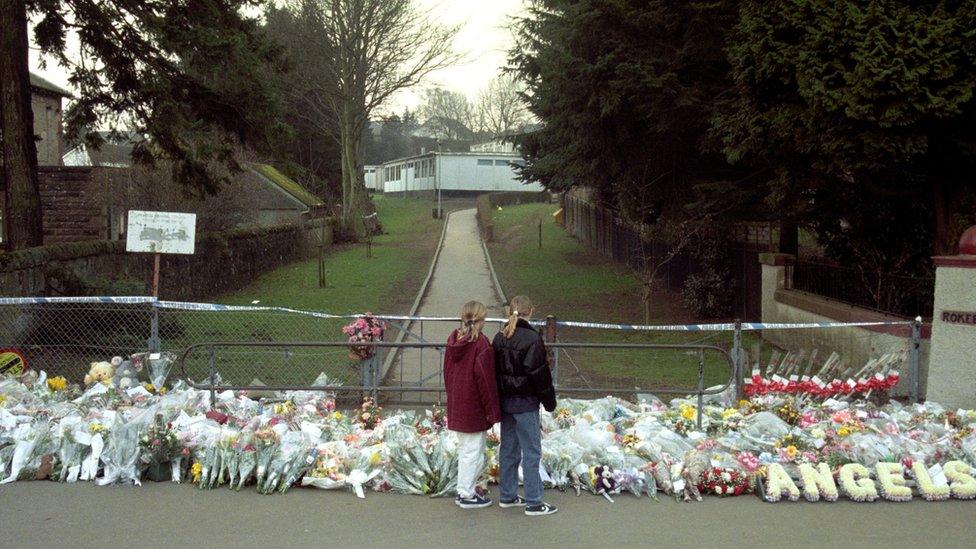
- Attribution
- Published24 February 2020
